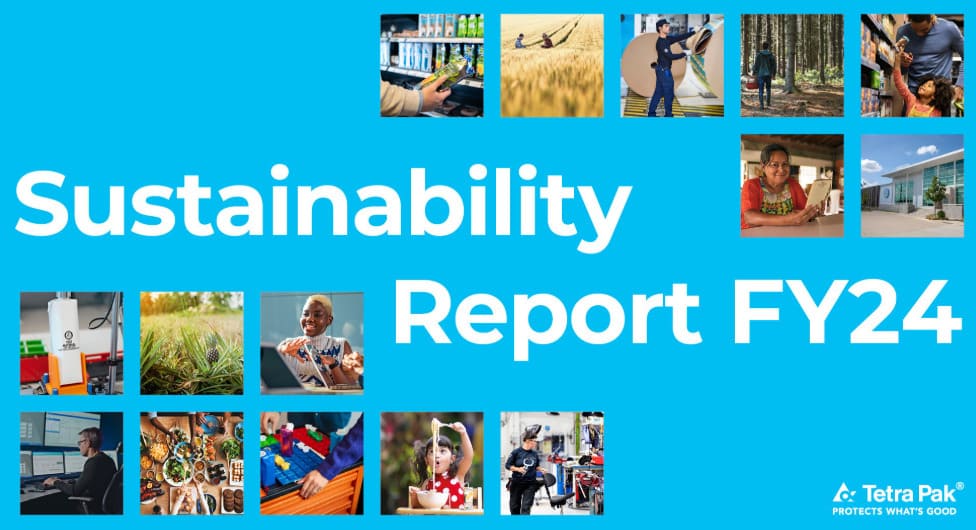Tetra Pak today launched its full-year 2024 (FY24) Sustainability Report, highlighting a 25% reduction of greenhouse gas (GHG) emissions across its value chain since 2019, marking a further five-percentage-point improvement since 2023. Within its own operations, the company has achieved a 54% reduction in GHG emissions since 2019 and reports 94% renewable energy consumption in its own operations, keeping the company on track to achieve net-zero GHG emissions in its own operations by 2030. Moreover, these environmental achievements go hand in hand with the company’s continuous efforts to improve livelihoods and strengthen economies through the delivery of safe food everywhere.
Adolfo Orive, President & CEO at Tetra Pak, comments: “By 2050, the global population is projected to reach 10 billion, driving a 60% surge in food demand. Yet, while food systems are vital to sustaining modern life, they also account for more than one-third of global greenhouse gas emissions. This growing tension between the need for increased food production and reduced environmental impact presents a critical challenge – one that Tetra Pak is committed to addressing. As highlighted in our latest Sustainability Report, we are driving more secure and sustainable food systems, while mitigating climate impacts and improving livelihoods. We look forward to working with our customers and other stakeholders as we continue the journey.”
The progress illustrated in the Tetra Pak FY24 Sustainability Report puts the company on track to achieve its 2030 ambition of reducing GHG emissions across its value chain by 46% (Scopes 1, 2 and 3), compared to the 2019 base year. This follows another year of significant development in decarbonising the company’s own operations and helping its customers reduce their emissions through the equipment, technology and services that Tetra Pak provides. Such advancements demonstrate the company’s ongoing commitment to working collaboratively with suppliers, customers and other stakeholders to achieve net-zero GHG emissions across the value chain (Scopes 1, 2 and 3) by 2050, compared to the 2019 baseline.
One significant contributor to Tetra Pak’s progress in reducing GHG emissions across its value chain in 2024 was the company’s resource-efficient equipment, whole-factory optimisation technology, and packaging solutions with lower carbon footprints. These innovations have helped food and beverage producers maintain their competitive edge while reducing their own emissions.
For example, in 2024, GHG emissions from delivered ambient dairy lines decreased by 13% compared to 2023, and by 42% from the 2019 baseline. New equipment introduced this year, such as the Tetra Pak Tubular Heat Exchanger featuring unique, patent-pending Q corrugation, has proved particularly impactful. This design reduces the pressure drop by 40% (that is, the reduction in pressure as fluid flows through the tubes), allowing customers to cut the electricity consumption of the heat exchanger pump (used during food and beverage production for processes such as sterilisation and pasteurisation) by up to 40% compared to the previous market-leading model. As a result, customers benefit from both lower energy costs and a reduced carbon footprint.





